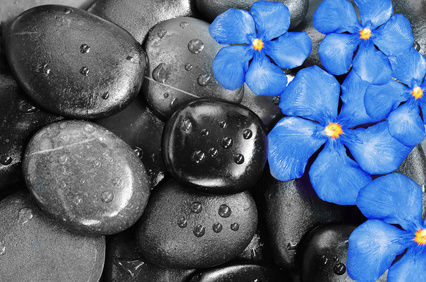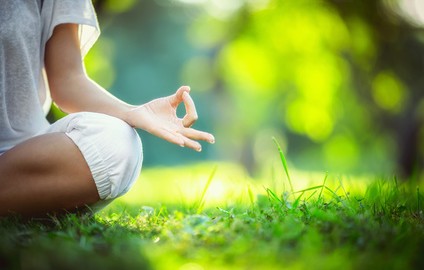At our North Oakville Physiotherapy, Massage and Foot Clinic, our Physiotherapists and Massage Therapists can and may suggest the use of Acupuncture as a modality to help compliment your treatment.
What is Acupuncture?
Acupuncture is an ancient form of Chinese medicine involving the insertion of acupuncture needles into the skin at specific points on the body to achieve a therapeutic effect. Acupuncture is used to encourage natural healing, reduce or relieve pain, improve mood, energy and improve function.
Acupuncture needles are solid, usually stainless steel, and measure from 13-70 mm in width. Two or three acupuncture needles would fit inside the barrel of a regular hollow needle used for injections. The needles are very fine, flexible and rounded but sharp at the tip. They are ‘atraumatic’, meaning that they do not have a cutting edge, allowing them to glide smoothly through tissues. Acupuncture needles are unlikely to cause bleeding or damage to underlying muscle and tissue.
How does Acupuncture work?
The insertion of acupuncture needles in the body at specific acupuncture points causes the release of the body’s own pain relieving chemicals known as endorphins. When a needle is inserted, it acts on the neurohormonal pathways by stimulating the peripheral nerves. These nerves send signals to the brain, which in turn releases endorphins. Endorphins block the passage of pain messages to the brain and increase the pain threshold, resulting in reduced pain, relaxation and restoration of the body’s own internal regulation system. Another hypothesis is that acupuncture reduces pro-inflammatory markers in the body, which helps to decrease pain and inflammation.
Traditional Chinese acupuncture is thought to work by stimulating acupuncture points that release a flow of energy, called qi. Qi (chi) runs through 13 meridians, or channels, in the body and it is thought that pain is caused by a blockage of energy throughout these meridians.
What conditions does Acupuncture help?
Acupuncture can help with a number of different musculoskeletal injuries, including, but not limited to:
- Hip and knee osteoarthritis

- Sprains and strains
- Tendonitis
- Lower back pain
- Sciatica
- Shoulder pain
- Tennis elbow
- Carpal tunnel
- Bell’s Palsy
- Neck pain and headaches
- Post-surgical pain
Does Acupuncture hurt?
While each person experiences acupuncture differently, most people feel only minimal discomfort as the needles are inserted and some feel no pain at all. Some people report a sensation of increased energy, while others feel relaxed.
Is Acupuncture safe? Are there any risks?
When practiced by a licensed, trained acupuncture practitioner, acupuncture is extremely safe. Precautions are related to clean needling technique including use of sterile needles and appropriate disposal of needles, as well as proper hand washing and skin preparation. Women in early pregnancy and hemophiliacs should be treated with caution. The risks involved with acupuncture are very minimal. Fainting, dizziness and vomiting are a risk but are more involved with patients experiencing anxiety and fear of needles. Infection is a risk associated with acupuncture but is decreased dramatically with the use of sterile, one time use needles and appropriate cleaning techniques used by the practitioner. If a needle is inserted too deeply, there is risk of puncturing an internal organ. Lastly, acupuncture needles can induce soreness, bruising and minimal bleeding at the acupuncture site. It is important to stress that these risks are very uncommon, and when treated by a trained acupuncture provider, these risks are minimal and the treatment is very safe.
What to expect with acupuncture treatment:
Some people obtain relief immediately, while some notice improvement after a few hours. Some people require a few treatments before noticing any change, while some people do not respond at all. The number of treatments required varies between each person and the condition being treated.
What to do before and after an acupuncture session
Have a light meal before treatment. It is best to avoid alcohol or sedatives for four hours before treatment and another two hours following treatment. Caffeine and cigarettes should also be avoided for about two hours following treatment. For painful conditions, avoid strenuous activity for 48 hours following treatment. Medication as directed by your physician may be taken as required.
In some cases your Physiotherapist or Registered Massage Therapist at our Oakville Physiotherapy, Massage and Foot Clinic may discuss with you how Acupuncture may help compliment your treatment. As with any direction of care the risks and benefits will be discussed with you.

